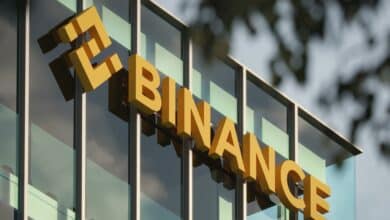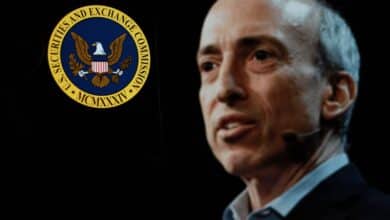
Robinhood unveiled plans for an initial public offering (IPO) earlier this month, and now I’ve found that the IPO valuation is US$33 billion. That’s surprising since it’s about 20% lower than the $40 billion valuations, which was the expected target for the popular stock trading software.
The diminishing of their figures reveals a fundamental tale about the significance of emotions and state of mind in markets – what economist John Maynard Keynes dubbed as “animal spirits” in 1936. Keynes’ mention of something as nebulous as the mood of the investing public went directly contrary to the idea of homo economicus, which lay at the heart of the so-called classical economics that has mainly dominated the subject. This fictitious person possesses comprehensive market information and can make objectively right decisions regarding asset prices based not just on present circumstances but also on anticipated future forecasts.
However, Robinhood’s lockout IPO embodies much of the EMT. The idea of EMT is that the market efficiently deals with all information on a given security and reflects it in the price immediately. Robinhood has benefited the last 18 months of trading because of memes, and incentive fuelled speculation, which may be determined by the coronavirus pandemic. And it now appears to be at a knife-edge, while the short-term market is falling to diminish its enthusiasm for what is supposed to be a long-term bet.
We can take into account the US$33 billion valuations of Robinhood, compared to the US$85.8 billion valuations of Coinbasethe time of the IPO in April. I won’t go into detail, but it doesn’t make sense that Coinbase can be valued at about three times higher than Robinhood, based on the fundamental concepts of the company, as well as the number of users. For example, Robinhood has just claimed responsibility for the 22.5 million accounts which were funded. Coinbase declared $56 million accounts, in its first quarterly statement as a public company, but it is only 6.1 million active users. Robinhood also has a competitive gap, much better than Coinbase, which is likely to be compromised by market competitors that have lower charging fees. Among the participants include Robinhood, which is currently trading BTC (-2.85%), and ETH (-1.11%), and LTC (-3.86%), and dogecoin (DOGE, -3.28%), but it would be able to quickly expand its services.
So, with all this in mind, how did Coinbase end up with an IPO valuation of about three times that of Robinhood?
Well, the short answer is that the timing of the IPO, despite popular belief, is rather important. Coinbase joined the equity market in a time of market expansion for digital assets. Because of the timing, it has managed to raise approximately five times the $18.1 billion in the reputational area that it is considered acceptable based on the guidelines.
This morning, the Dow Jones Industrial Index fell 3%, partly on fears that the new form of the COVID-19 Delta may delay the recovery of the global economy. It has cost Robinhood hundreds of millions of dollars in cash, which would not have been able to be realized, had the IPO taken place four months earlier.
This has implications that are critical and can be very scary for capital markets because according to the theory of efficient markets (EMT), the timing of the market for IPOs is not supposed to be a thing. According to EMT, while you make a long-term investment like an IPO, and investors should be able to remove it in its entirety, and in a way that corresponds to the short-term state of the market and the economy. In real terms, the EMT would say that investors in Coinbase, in April, were able to predict that the crypto market will peak based on historical trends, well established. Of course, when you put it like that, the ridiculousness becomes obvious.
Let’s be honest, a more realistic interpretation of EMT would take into account the gap in time while at the same time the markets determine the “real worth” of an individual asset – but, it does not mean that every investor is quite rational, but rather that the market converges towards the rational ideal as knowledge and information are distributed. The shares of Coinbase collapsed by over 30% since the IPO, so this is probably when the early investors have been looking at the stats, and have changed their thoughts.
But just as important is the downside of the market in general, crypto is inherently highly speculative and therefore is heavily influenced by the state of the mind. In other words, the drop makes sense to cause and stir various emotions, whilst recognizing and digesting the hard-to-swallow truth. Even after a 30% drop in its IPO price, CoinBase is still valued at $45 billion, over and above the IPO valuation of Robinhood. The logic of the market, in the long run, was overcome by the right timing and emotion of users.
The disparity between the initial public offerings of, Coinbase, and Robinhood is just one example of market irrationality. There are now many economists who are moving away from the direction intended by the notion of efficient markets and homo economicus. This has progressed to the point where the Nobel Prize in Economics, the Memorial of the Bank of Sweden, has been awarded twice in the last decade to some of the scientists who have worked, in particular, to identify the flaws in the EMT and the homo economicus.
Daniel Kahneman was awarded the Bank of Sweden’s prize in 2011 for his work on the “fast and slow” thinking systems of the people, which provides a compelling way to explain the trader as confusing, impulsive, and greedy which always manages to buy at the top and sell it at the bottom. In 2013, the prize was awarded to Robert Shiller, whose research on the influence of economic narratives is central to understanding the rise of financial institutions and markets.
Tokenhell produces content exposure for over 5,000 crypto companies and you can be one of them too! Contact at info@tokenhell.com if you have any questions. Cryptocurrencies are highly volatile, conduct your own research before making any investment decisions. Some of the posts on this website are guest posts or paid posts that are not written by Tokenhell authors (namely Crypto Cable , Sponsored Articles and Press Release content) and the views expressed in these types of posts do not reflect the views of this website. Tokenhell is not responsible for the content, accuracy, quality, advertising, products or any other content or banners (ad space) posted on the site. Read full terms and conditions / disclaimer.






